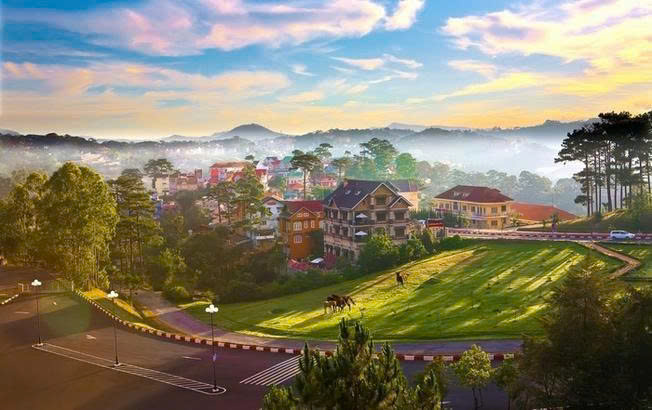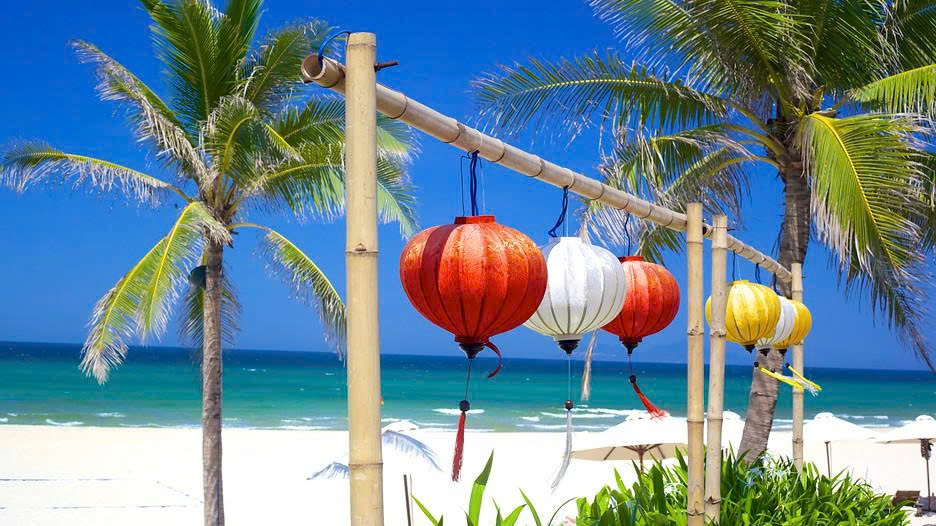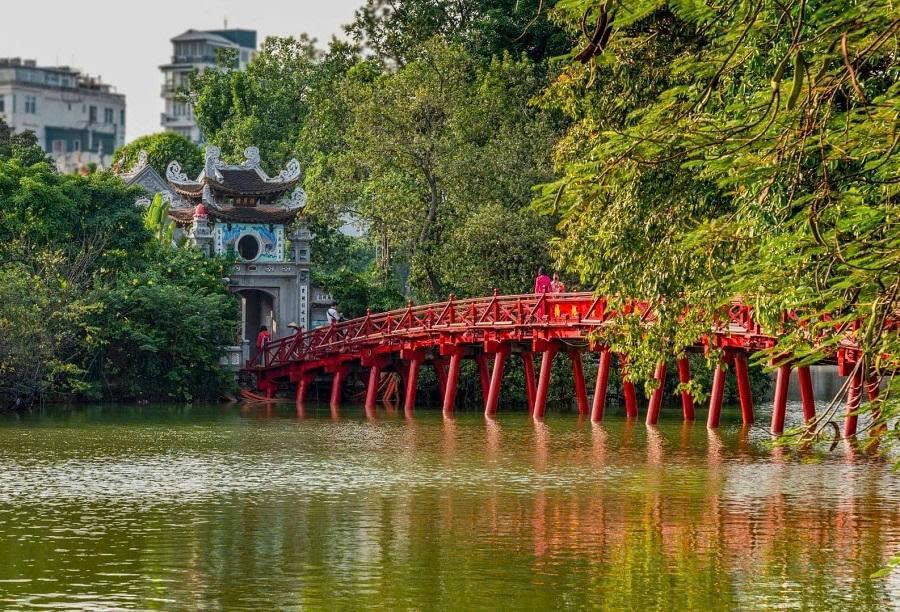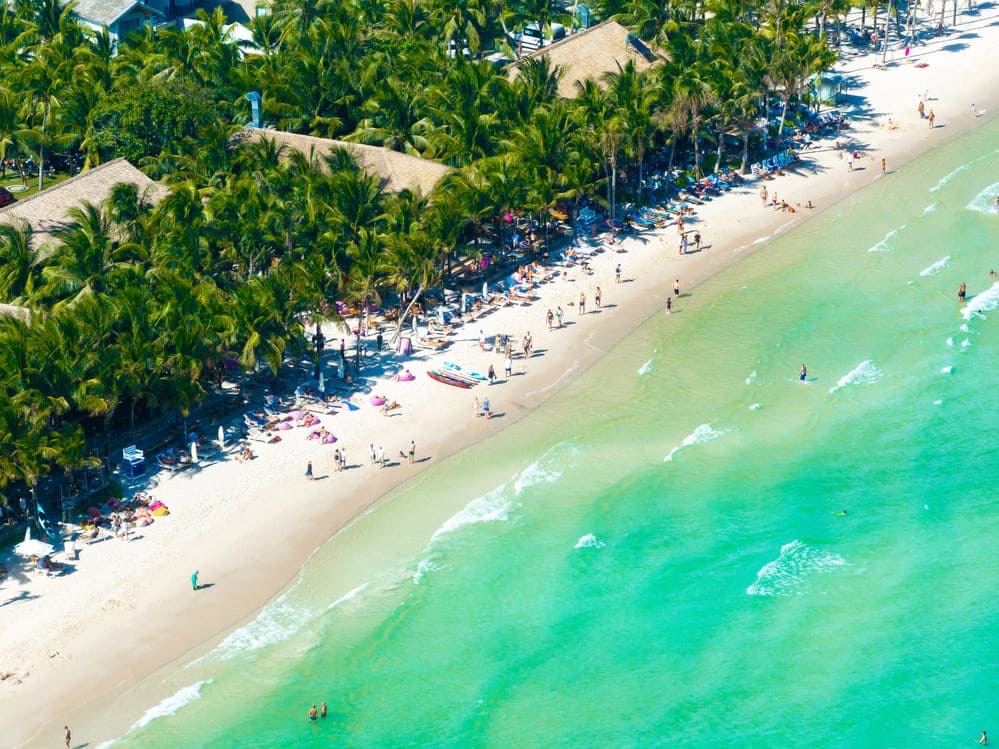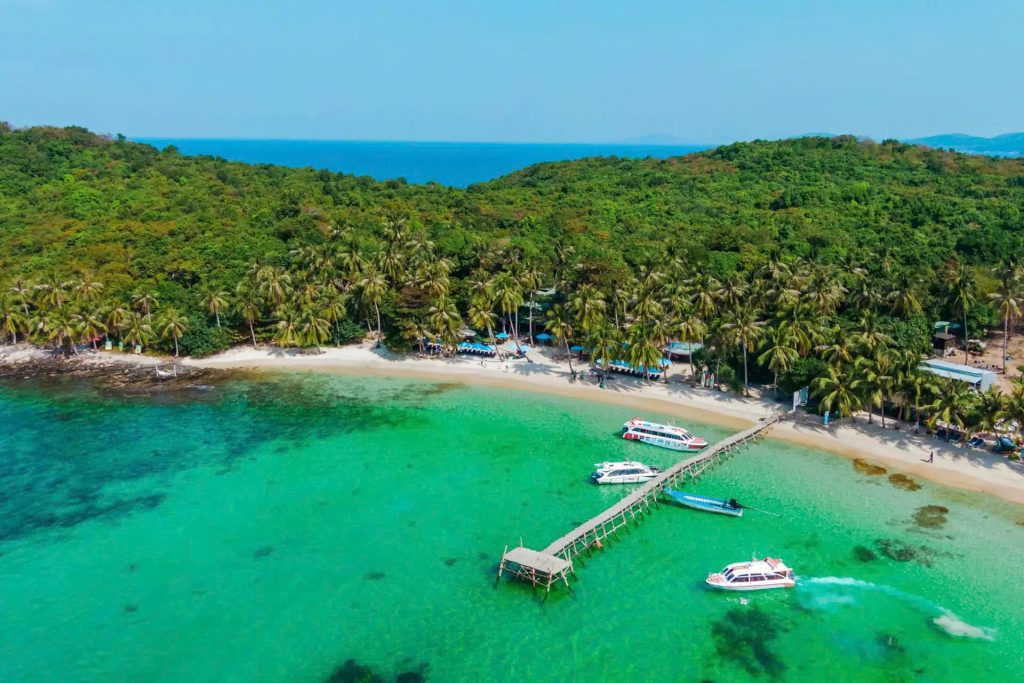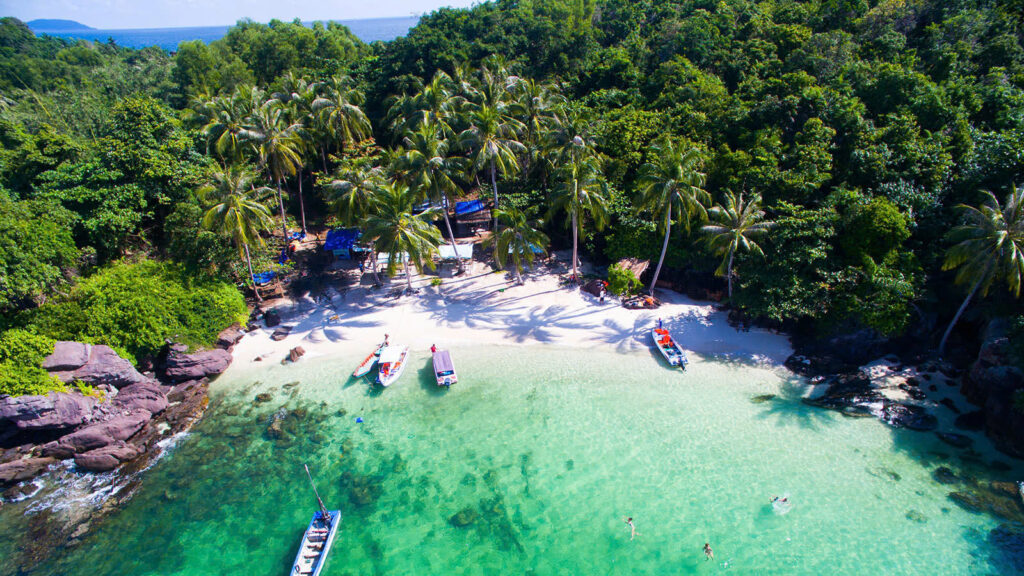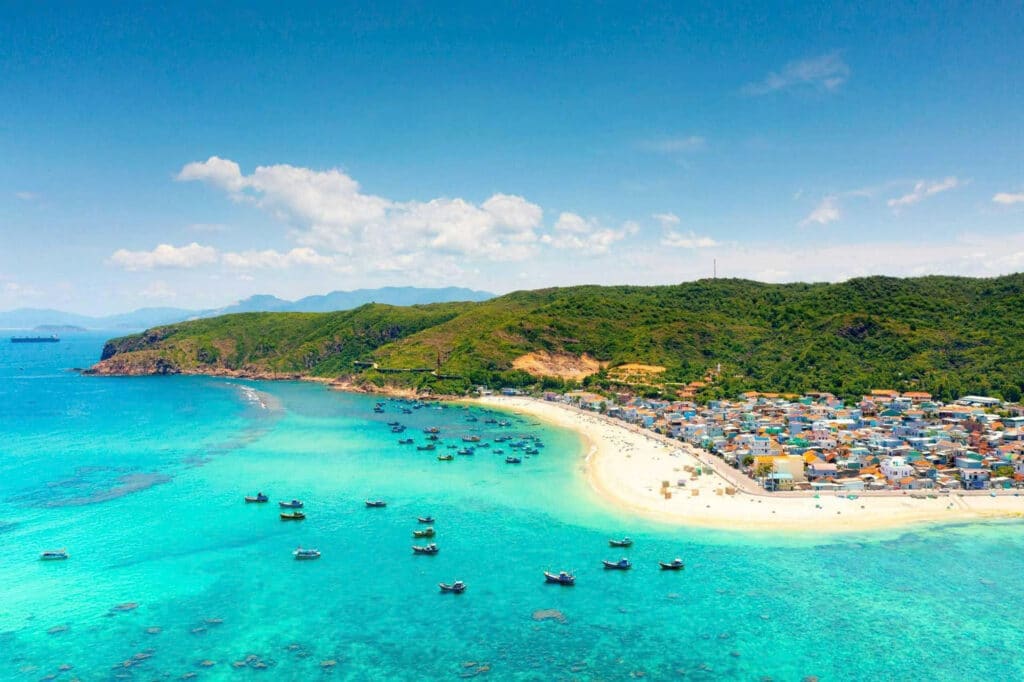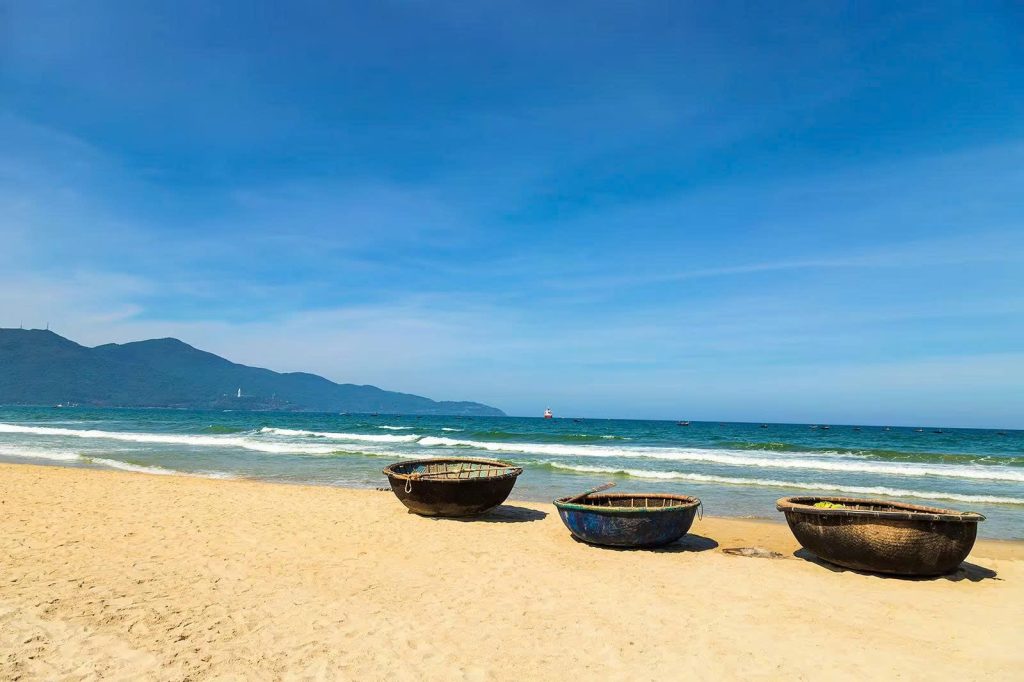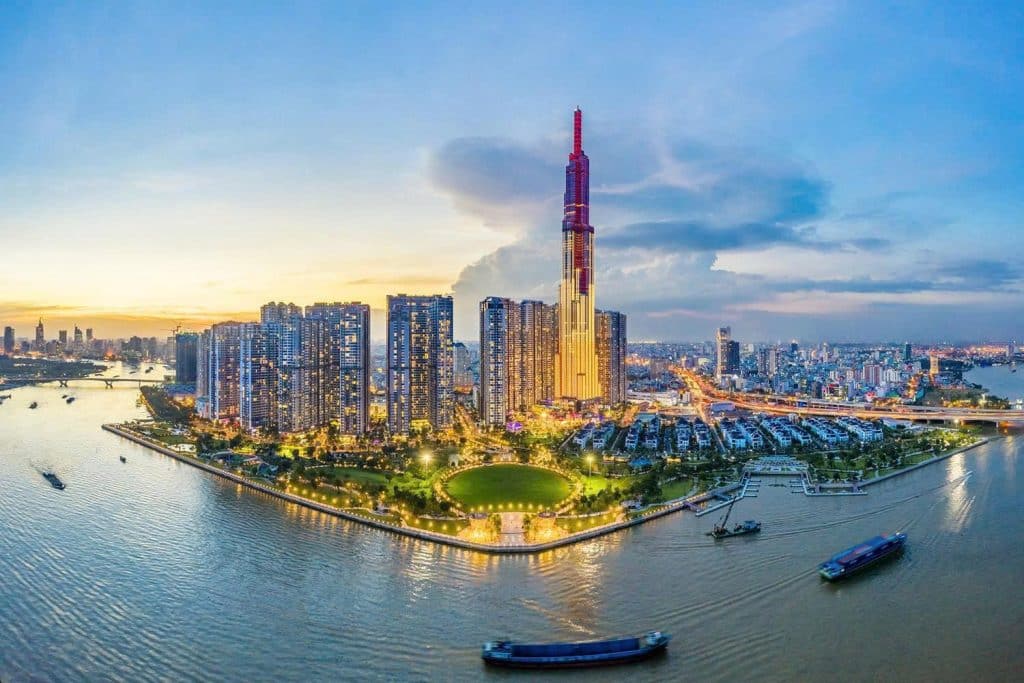Vietnam has firmly cemented its reputation as a magnet for digital nomads, not just for its captivating blend of ancient traditions and modern energy, but significantly for its incredible affordability. For those looking to stretch their dollar while enjoying a rich cultural experience and a productive work environment, Vietnam offers some of the most budget-friendly cities in Southeast Asia.
This guide will dive deep into what makes a city “cheap” for a digital nomad, break down the costs in specific Vietnamese cities, and offer actionable tips to help you live comfortably without breaking the bank.
Understanding “Cheap”: What Does an Affordable Digital Nomad Life Look Like in Vietnam?
When we talk about a “cheap” city for digital nomads, we’re not just referring to low rent. It encompasses a holistic view of your monthly expenses, allowing for a comfortable lifestyle without constant financial strain.
Key Cost Categories for Digital Nomads
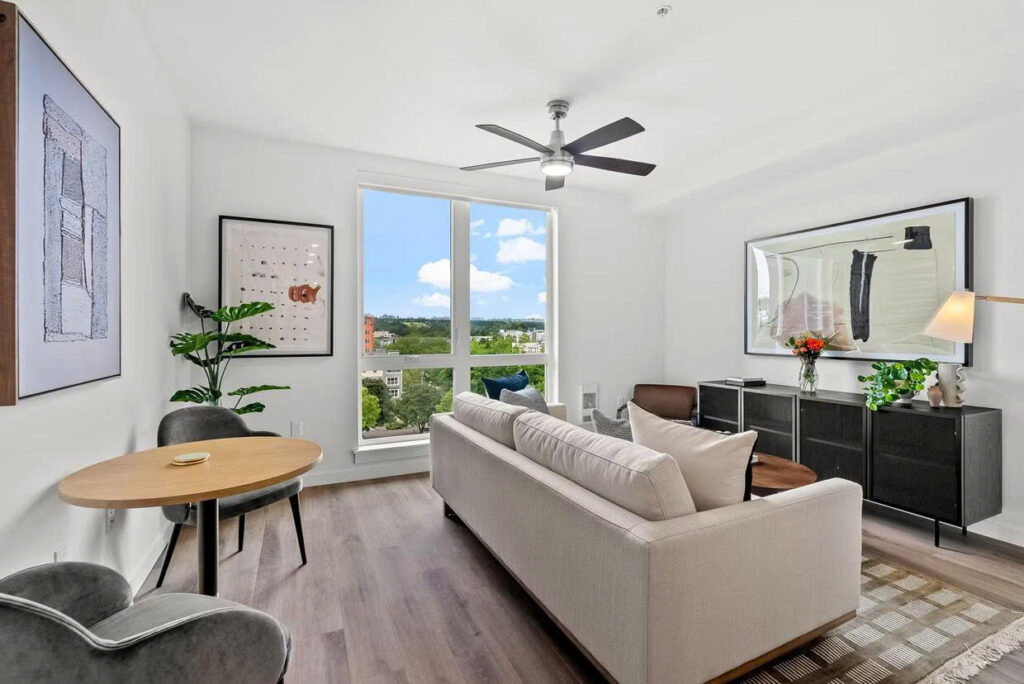
- Accommodation (Rent & Utilities): This is usually the largest expense. “Cheap” means finding a decent studio or 1-bedroom apartment for under $400-$500 USD/month, including basic utilities (electricity, water, internet).
- Food & Drink (Local vs. Western): Embracing local cuisine (street food, local restaurants) dramatically cuts costs. Western food, while available, quickly adds up.
- Transportation (Scooter, Grab, Public Transport): Owning or renting a scooter is cheap but comes with risks. Ride-hailing apps like Grab and Xanh SM are affordable alternatives.
- Internet & Coworking Spaces: While home internet is cheap, coworking spaces offer a productive environment. “Cheap” means affordable daily/monthly passes.
- Visa & Administrative Costs: Remember to factor in visa extension fees or visa run costs, which are ongoing expenses for long-term stays.
- Entertainment & Leisure: Local activities, simple outings, and happy hour deals keep this category low.
RELATED: Top Digital Nomad Tips for Living in Vietnam Smoothly
Typical Monthly Budget Ranges for Different Lifestyles
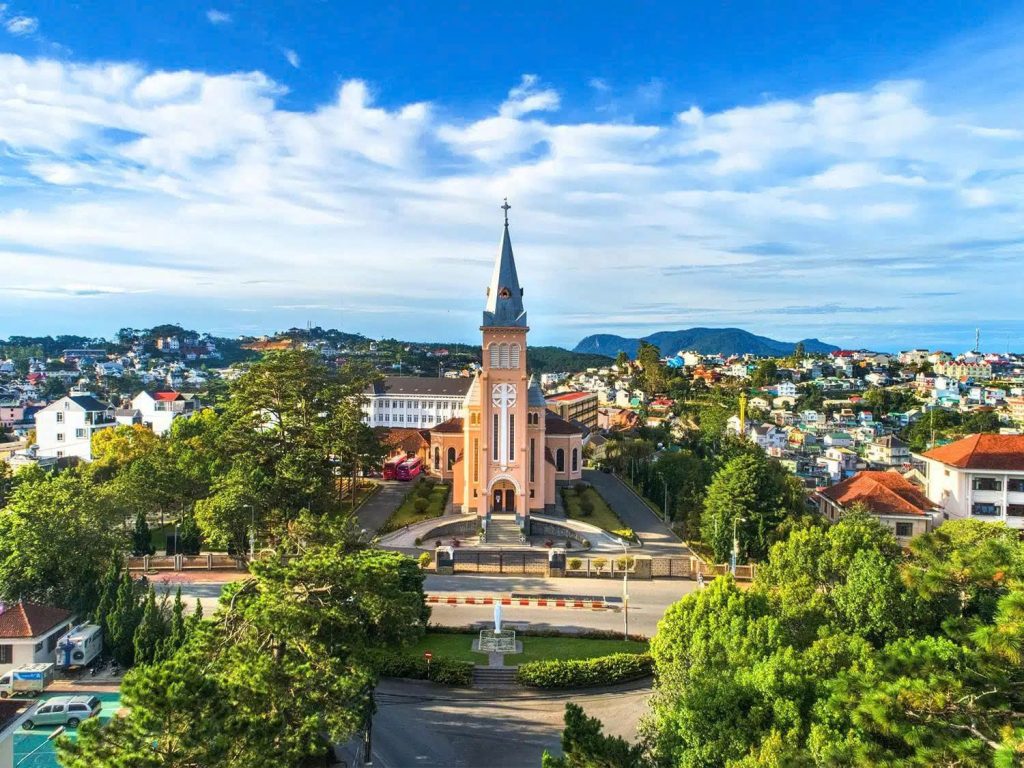
A comfortable budget for a solo digital nomad in Vietnam generally ranges from $700 – $1,500 USD per month.
- Super Budget: $700 – $900 USD/month (mostly local food, basic fan room/small apartment, minimal entertainment)
- Mid-Range: $900 – $1,200 USD/month (mix of local and some Western food, decent apartment, some coworking, moderate entertainment)
- Comfortable: $1,200 – $1,500+ USD/month (nicer apartment, more Western food, regular coworking, more leisure activities)
Top Cheapest Cities in Vietnam for Digital Nomads (and Why They’re Great)
While Ho Chi Minh City and Hanoi are popular for their amenities and communities, their costs are significantly higher than the hidden gems listed below. Let’s explore the cities where your money will go further.
1. Da Lat: The Mountainous Escape
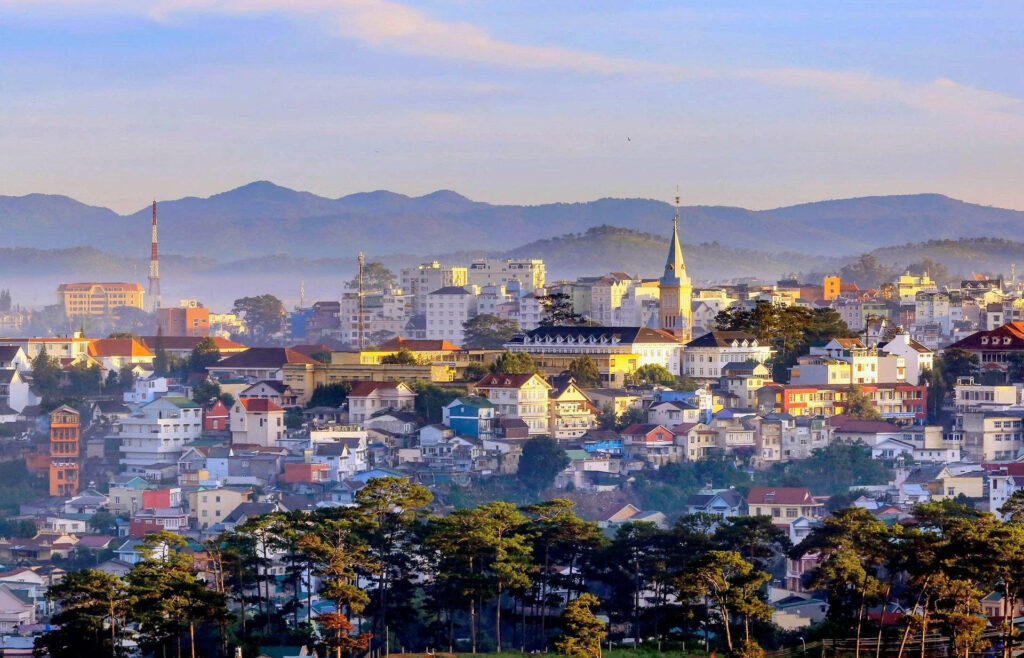
Nestled in the Central Highlands, Da Lat offers a refreshing climate, stunning landscapes, and a surprisingly vibrant digital nomad scene, all at a very reasonable price.
Cost Breakdown:
- Accommodation: $250 – $450 USD/month for a comfortable apartment or homestay. You can find basic rooms for less.
- Food: $100 – $250 USD/month if you stick to local eateries and markets. Da Lat’s street food is legendary and incredibly cheap.
- Transportation: $50 – $100 USD/month for scooter rental.
- Coworking/Cafes: A handful of pleasant cafes with good Wi-Fi.
Digital Nomad Vibe & Infrastructure: A small but growing community of nomads drawn to the cooler weather and laid-back atmosphere. Wi-Fi is generally good.
Pros & Cons for Budget Nomads:
- Pros: Very low cost of living, pleasant climate, beautiful nature, unique French colonial architecture.
- Cons: Smaller expat community than major cities, fewer dedicated coworking spaces, can get chilly in winter.
Things to Do & Lifestyle: Explore Xuan Huong Lake, visit flower gardens, hike in the surrounding hills, enjoy the “City of Eternal Spring” vibe, and sample local specialties like Bánh Mì Xíu Mại and Lẩu Gà Lá É.
2. Hue: The Imperial City with a Calm Pace
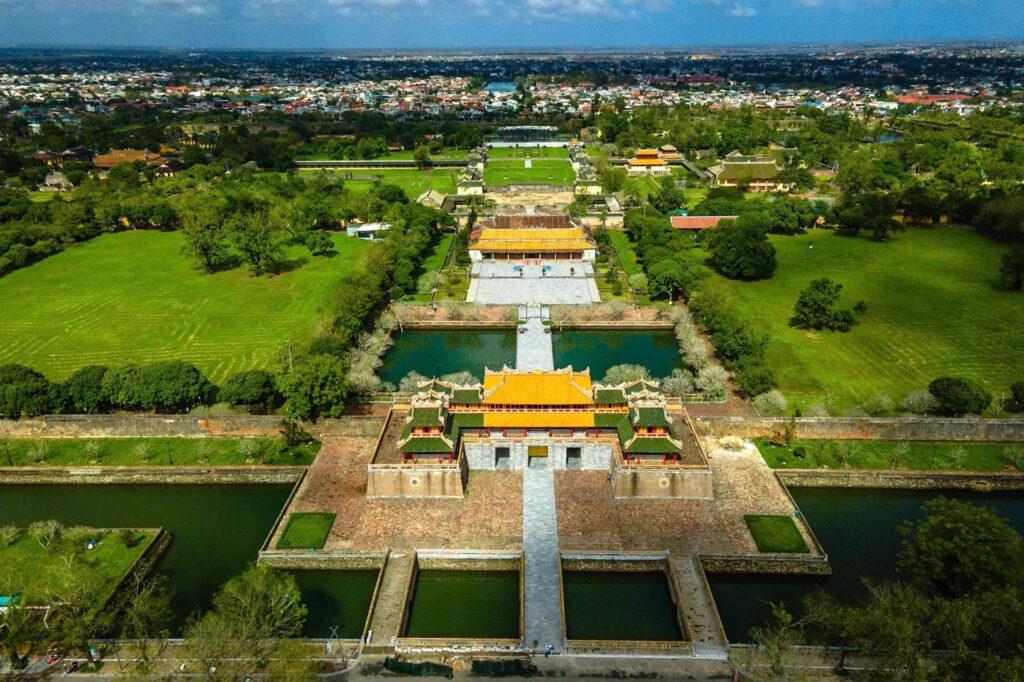
Hue, Vietnam’s former imperial capital, provides a deep dive into history and culture without the hustle and bustle (or price tag) of larger cities.
Cost Breakdown:
- Accommodation: $200 – $400 USD/month for a comfortable apartment or guesthouse.
- Food: $100 – $200 USD/month for delicious local cuisine. Hue is famous for its unique dishes.
- Transportation: $40 – $80 USD/month for scooter rental.
Digital Nomad Vibe & Infrastructure: A smaller, more local scene. Internet is reliable, and friendly cafes offer good work spots.
Pros & Cons for Budget Nomads:
- Pros: Extremely affordable, rich historical sites (Imperial City, pagodas), genuine local experience, less traffic.
- Cons: Limited dedicated coworking spaces, smaller expat community, can be hot and humid.
Cultural Immersion & Attractions: Explore the majestic Imperial City, take a boat trip on the Perfume River, visit Thien Mu Pagoda, and indulge in royal cuisine.
3. Can Tho: Gateway to the Mekong Delta

Can Tho, the largest city in the Mekong Delta, offers an authentic Vietnamese experience characterized by its bustling floating markets and riverine life. It’s an excellent choice for those seeking true local immersion on a budget.
Cost Breakdown:
- Accommodation: $200 – $350 USD/month for a local apartment.
- Food: $80 – $180 USD/month, exceptionally cheap street food and fresh produce.
- Transportation: $30 – $70 USD/month for a scooter or relying on Grab/local boats.
Digital Nomad Vibe & Infrastructure: A very small, nascent digital nomad scene, but strong internet connectivity in most areas.
Pros & Cons for Budget Nomads:
- Pros: Super low cost of living, authentic local experience, gateway to exploring the Mekong Delta, friendly locals.
- Cons: Very limited expat community, fewer Western amenities, intensely hot and humid.
Unique Experiences & Local Life: Explore Cai Rang Floating Market, visit fruit orchards, take boat tours through the canals, and enjoy the relaxed pace of delta life.
RELATED: How to Find Long-Term Rentals in Vietnam as a Digital Nomad
4. Quy Nhon: The Underrated Coastal Gem
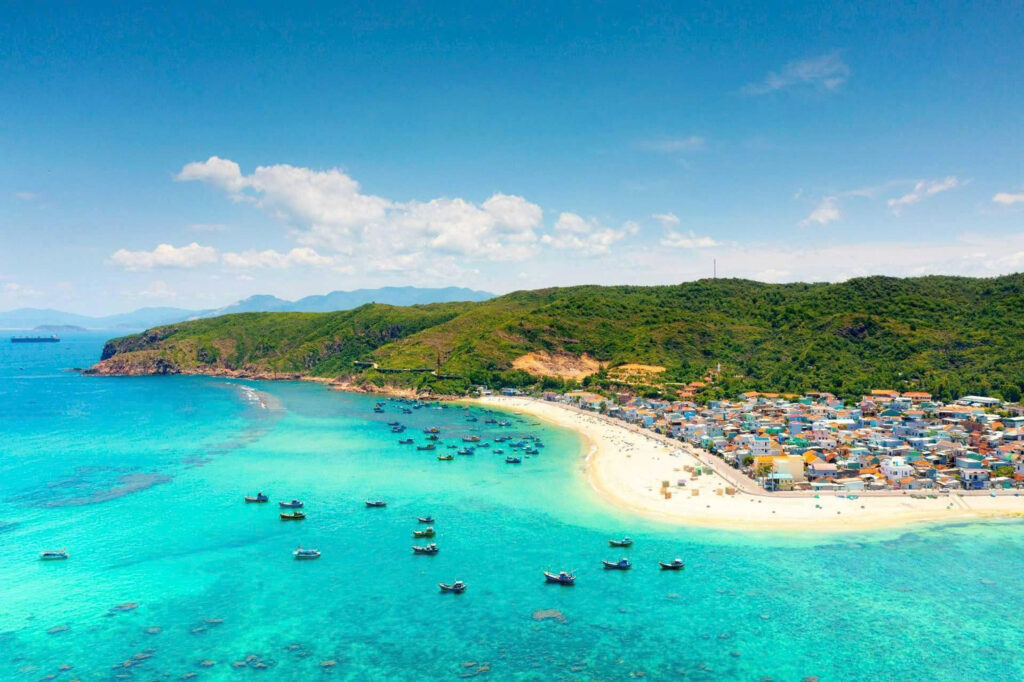
Quy Nhon is a rising star among Vietnam’s coastal cities, offering beautiful beaches, fresh seafood, and a laid-back atmosphere without the tourist crowds (and prices) of Nha Trang or Da Nang.
Cost Breakdown:
- Accommodation: $250 – $450 USD/month for a sea-view apartment or guesthouse.
- Food: $100 – $250 USD/month, with abundant fresh and affordable seafood.
- Transportation: $40 – $80 USD/month for scooter rental.
Digital Nomad Vibe & Infrastructure: A small but growing expat and nomad community. Good internet, but dedicated coworking spaces are still few.
Pros & Cons for Budget Nomads:
- Pros: Stunning beaches, excellent seafood, very affordable, less touristy feel, friendly atmosphere.
- Cons: Limited international flights, smaller expat scene, fewer Western amenities.
Beaches & Relaxation: Enjoy the pristine beaches like Quy Nhon Beach or Eo Gio, explore local islands, and indulge in seafood feasts.
Tips for Living Affordably as a Digital Nomad in Vietnam
Regardless of your chosen city, these tips will help you maximize your budget.
4.1. Finding Budget-Friendly Accommodation
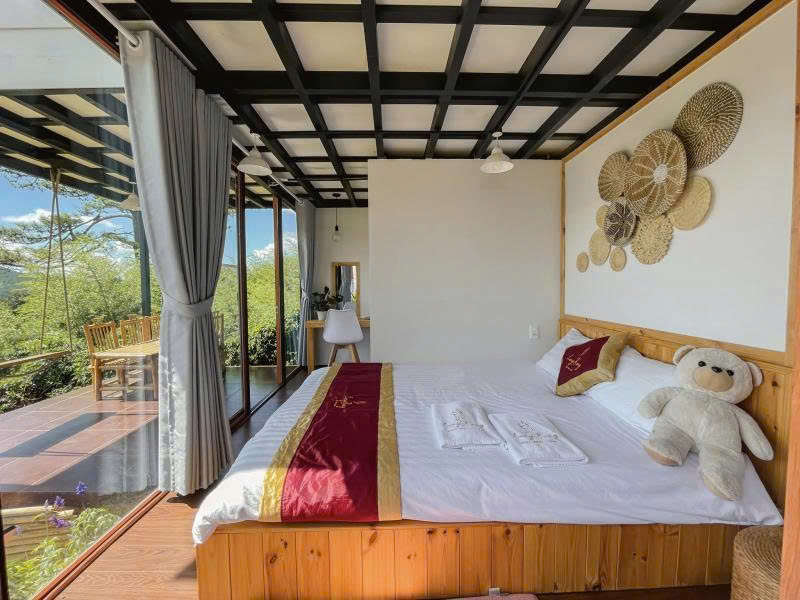
- Local Facebook Groups & Websites: These are your best friends. Search for “Apartments for Rent in [City Name],” or “[City Name] Expats” groups. Popular sites include Chotot.com (local classifieds) or specific local real estate agencies.
- Negotiating Rent & Long-Term Leases: Always try to negotiate, especially for leases of 3 months or longer. Landlords are often flexible.
- Considering Homestays or Guesthouses: For initial periods, these can be very affordable and offer a taste of local living before committing to a long-term rental.
4.2. Eating Smart: Embrace Local Cuisine & Markets
- Street Food vs. Restaurants: The street food scene in Vietnam is a delight for the taste buds and incredibly light on the wallet. A bowl of Phở can cost as little as $1.50 – $2.50 USD. Restaurants catering to tourists will be significantly more expensive.
- Shopping at Local Markets: For groceries, skip convenience stores and head to local wet markets. You’ll find fresh produce, meat, and fish at a fraction of the supermarket price.
4.3. Cost-Effective Transportation
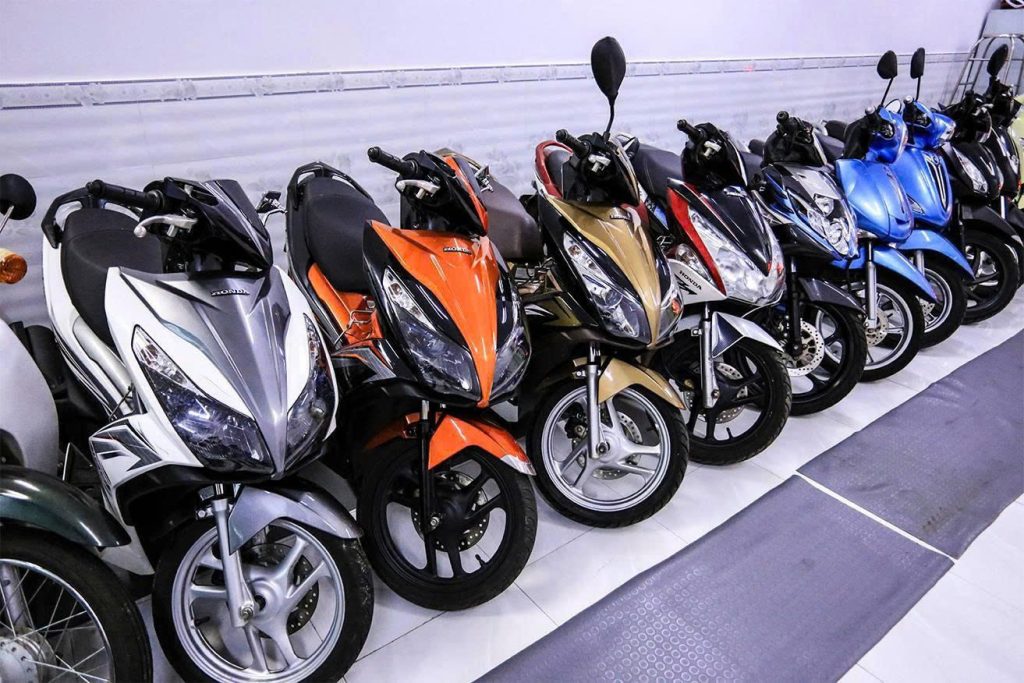
- Utilizing Ride-Hailing Apps (Xanh/Grab): For short distances, these apps are your most cost-effective and convenient option for both motorbikes and cars.
- Renting a Scooter Long-Term: If you’re comfortable with Vietnamese traffic, a monthly scooter rental ($50-$100 USD) is the cheapest way to get around. Always wear a helmet and ensure your travel insurance covers motorbike accidents, and remember an International Driving Permit is legally required.
4.4. Managing Your Budget & Finances
- Using Wise (formerly TransferWise) for Transfers: For sending money to Vietnam or managing different currencies, Wise offers competitive exchange rates and low fees.
- ATM Fees & Local Banking: Be mindful of ATM withdrawal fees (typically 30,000-50,000 VND per transaction). Look for banks like Agribank or Vietcombank which might have higher withdrawal limits. Opening a local bank account can be tricky without a long-term visa.
Beyond the Budget: Other Factors for Digital Nomads to Consider
While cost is a primary driver, a truly “cheap” city should also meet your lifestyle and work needs.
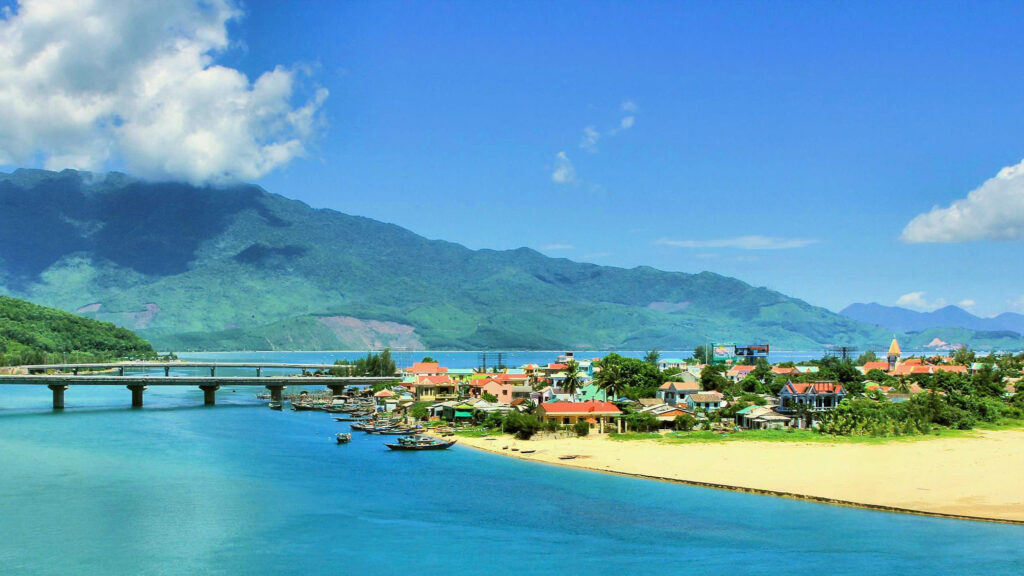
- Internet Speed & Reliability: Most cities have good internet in urban areas, but always verify for your specific accommodation.
- Community & Expat Scene: Smaller, cheaper cities will have less developed expat communities. Consider if this isolation suits you. Facebook groups like “Digital Nomads Vietnam” or “Expats in [City Name]” can help you connect.
- Safety & Healthcare Access: Vietnam is generally safe, but petty theft can occur. Research local hospitals and clinics and ensure your international health insurance covers you adequately.
- Visa Accessibility & Extension Potential: Research local visa extension options, as they can vary slightly by province.
- Climate & Environment: Each region has a distinct climate. Da Lat is cool, while the south (Can Tho, HCMC) is hot and humid year-round. Consider wearing a mask if pollution is high in larger cities.
RELATED: Vietnam Digital Nomad Visa 2025: Guide to Remote Work Residency
Choosing the right city in Vietnam as a digital nomad is a balance between your budget, work requirements, and desired lifestyle. While Ho Chi Minh City and Hanoi offer abundant amenities, the true gems for cost-conscious nomads lie in places like Da Lat, Hue, Can Tho, and Quy Nhon.
By embracing local living, smart budgeting, and leveraging the tips in this guide, you can unlock an incredibly rewarding and affordable digital nomad experience in Vietnam. Start exploring, and find the perfect low-cost base for your next adventure!
- Independence Palace: Ho Chi Minh City Landmark Guide
- EPICKA Universal Travel Adapter – 4 USB Ports + 1 Type-C
- Complete Guide to Ben Thanh Market: Shop, Dine, and Explore
- Local’s Guide to Vietnamese Etiquette: Do’s & Don’ts for Travelers
- Tourist criticized for drinking offering at a Japanese cemetery

